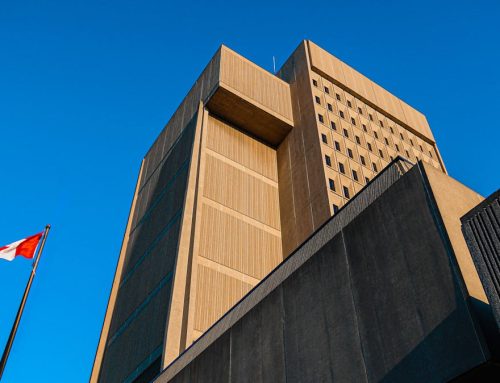It was recently announced that British Columbia received a three-year exemption from the Controlled Drugs and Substances Act to remove the criminal penalties associated with certain illicit substances for personal use.
The time-limited three-year trial comes after overdoses killed over two thousand people in BC in 2021 alone. The new criminal code exemption allows adults to possess a combined total of 2.5 grams of MDMA, opioids, methamphetamine, and cocaine. Although these drugs are still considered illicit, adults found in possession of controlled drugs for personal use won’t face any arrest, or criminal penalties, nor have the drugs seized.
At Jaswal & Krueger Criminal Defence Lawyers, we understand that being charged with a crime can be a daunting experience. If you have been charged with a drug-related offence, it is important to seek legal advice as soon as possible. Our team of drug charge lawyers in BC have many years of experience in criminal defence law. We will work tirelessly to ensure that your rights are protected and that you receive the best possible outcome.
British Columbia (BC) Drug Statistics
Health Canada and the BC Ministry of Health first acknowledged that drug overdoses resulting from the opioid crisis were a public health emergency more than five years ago. Today, overdose deaths have reached historic highs. Over 9,000 people have lost their lives to drug overdoses in the province since 2016.
According to data from the BC Coroners Service:
- In the past seven years, drug use deaths have risen 400% in British Columbia
- More than 2,224 British Columbians died of toxic illicit drugs in 2021. The province-wide death rate in 2021 was 42.8 per 100,000 residents.
- In 2020, more than the 1,767 illicit drug-related deaths occurred in the province
- In 2021 71% of those who lost their lives to drug overdose were between 30 and 59. About 78% of the victims were male
- The townships that recorded the highest number of drug toxicity deaths in 2021 are Victoria, Surrey, and Vancouver
What Is The Purpose Of Decriminalization Drug Policy?
The government says it is taking this critical step to reduce the shame and fear associated with substance use. The decision to decriminalize possession of certain illicit substances comes after a rethink of drug policy that favors healthcare over handcuffs.
According to the Federal Minister of Mental Health and Addictions, Carolyn Bennett, the ideological opposition to harm reduction has cost lives over the years. She says the government is doing this to save lives and restores dignity and choices for people using drugs.
According to Bennett, stigma, and fear of criminalization cause some people to hide their drug use. They end up using the drugs secretly, which increases the risk of harm. “Removing penalties for possessing small amounts of illicit drugs for personal use will reduce stigma and harm and provide another tool for BC to contain the overdose crisis.”
Generally, studies reveal aggressive drug enforcement laws increase overdose mortality, while the provision of medication-assisted treatment has been found to have the opposite effect. Criminalization also increases drug market violence levels, contrary to the conventional wisdom that increasing drug law enforcement will reduce violence.
How Long Will The Program Run?
The exemption takes effect from Jan. 31, 2023, to Jan. 31, 2026, throughout British Columbia. The province has partnered with several stakeholders to implement the program and establish the health and public safety indicators aimed at monitoring and evaluating the outcomes of the exemption in real-time. Some of the partners include:
- The Canadian Federal Government
- Local Health Authorities
- Indigenous Partners
- Community Organizations
- Law Enforcement Agencies
Are There Exemptions To Drug Decriminalization Policy?
There are several exemptions to the scheme to decriminalize drugs. The three-year exemption will apply to drug users, 18 years of age and older, and include opioids, cocaine, methamphetamine, and MDMA (aka ecstasy).
The policy does not apply to all people in all situations. Exemptions include:
- Canadian military members
- Child-care facilities
- Primary and secondary school grounds
- Airports
Does The New Policy Legalize Substance Use?
The policy approved by the federal officials doesn’t legalize substance use. However, as mentioned earlier, Canadians in BC who possess up to 2.5g of specific illicit drugs for personal use won’t be arrested or charged. Instead, the law enforcement will provide information on available health and social supports and will help with referrals when requested.
Are There Proven Success Rates In Other Jurisdictions?
Yes. In the United States, Oregon has decriminalized possession of some illicit drugs. The state realized a sharp drop in drug arrests and deaths. Nonetheless, this policy remains contentious for some.
What Are The Potential Implications Of Drug Legalization In British Columbia, Canada?
The big question in everyone’s mind is how will the decriminalization plan help address the overdose crisis in BC? Proponents of the policy argue that decriminalizing drug possession and investing in treatment and hard reduction services offer the public health several benefits.
Let us look at some of the potential positive implications of drug legalization in British Columbia:
Encourages drug users to seek treatment
Treating addiction as a health issue rather than a criminal issue gives stakeholders a better chance of helping addicts who need treatment and support to improve their overall health. Aggressive campaigns to arrest and incarcerate people using drugs only increase drug-related deaths because people are too afraid to seek help when they experience overdose symptoms.
Reduces drug use stigma
The decriminalization policies employed worldwide are effective at helping reduce the stigma associated with drug use. The criminalization of substance use often stigmatizes people who use drugs, making it more challenging to engage people in health care and other services.
Reduces high-risk behaviors
Criminalization often worsens social marginalization while encouraging high-risk behaviors such as binging, poly-drug use, and injecting in unhygienic, unsupervised environments. It eliminates the profits of the illegal drug trade and reduces the number of children lured by quick riches from selling drugs
Encourages effective communication
It also promotes health dialogue among family and friends regarding drug use issue, which is often hidden or ignored. Decriminalization help reduces socio-cultural factors associated with drug-using populations, such as lack of information and education, fear, mental health problems and homelessness.
Saves costs
Public funds are routinely prioritized for drug law enforcement while effective treatment programs are chronically underfunded. The new policy aims at saving money spent on costly and ineffective law enforcement efforts. The Nation’s resources would then be free for drug education, treatment, and rehabilitation. Reduces the number of drug cases in courts and prison beds available for drug offenders in prison
What Is The Shortcoming Of The Drug Decriminalization Policy?
Although the new policy is hailed as a step in the right direction, it fails to adequately recognize the fact people living outside larger cities, such as rural communities, often purchase larger quantities of drugs for personal use. Limiting the drug possession to 2.5g may not be practical since drugs are not as widely available in remote communities on a day-to-day basis. To avoid any unintended consequences, the government needs to listen to people in these communities and ensure they receive an equal level of care and compassion.
Is It Time For A Bold Policy Shift?
Early evidence suggests today is the right time to shift policy away from drug criminalization and steer it towards a health and human rights approach. Decriminalizing drugs is undoubtedly an additional tool in BC’s accelerated overdose response program that encompasses harm reduction, prevention, treatment, and recovery.
If you have questions or concerns about how these policy changes could impact your situation if you have a pending drug charge, contact Jaswal & Krueger to discuss your case.












